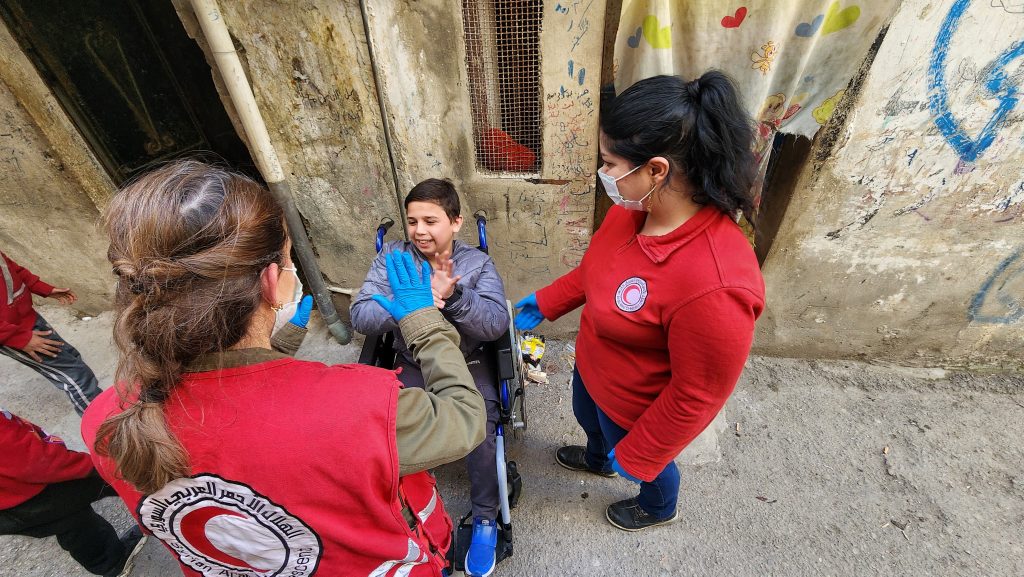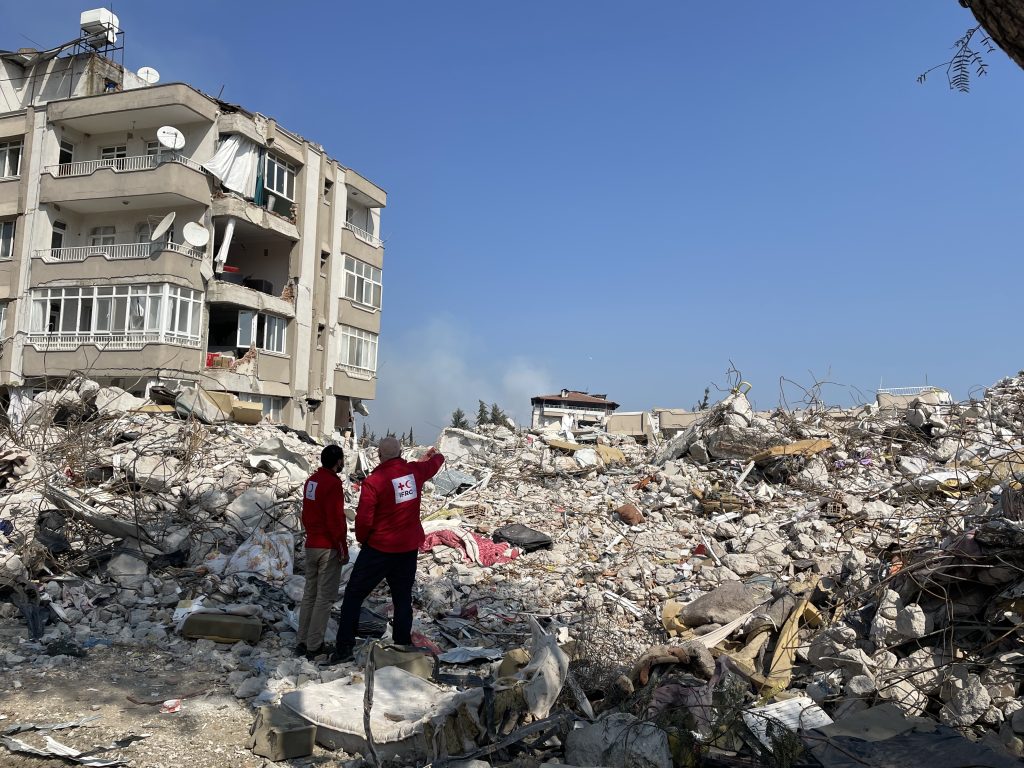08 February 2024

It is now a year since the border region between Turkey and Syria was hit by two violent earthquakes. With more than 55,000 deaths and 17 million people affected, the impact of this disaster is far-reaching.
In an emergency, the Luxembourg Red Cross raised 1 million euros. In close partnership with the German Red Cross, this funding enabled the provision of tents, blankets and winter equipment in Turkey, as well as medical supplies and preventive equipment in Syria.
One year on, while Turkey is on the road to recovery, Syria still faces many challenges, exacerbated by more than a decade of conflict.
The situation in Turkey
In Turkey, more than 9.1 million people are still suffering the consequences of the earthquakes and will need support for many months to come. The Turkish Red Crescent is carrying out a wide range of actions:

The situation in Syria
In Syria, 8 million people were affected by the earthquakes at a time when the country was already weakened by twelve years of conflict. The Syrian Arab Red Crescent quickly mobilised 4,000 staff and volunteers on the spot:
However, despite all these efforts, there is still a long way to go. The people affected have not just lost their homes or loved ones, but “their whole lives”. Their jobs, offices, shops, farms and so many other things that will take years to rebuild from scratch.
This is why the long-term support of the Red Cross is already involved in the reconstruction and the national societies on the site are working every day to help the victims.
You can continue to support Red Cross operations on the spot by making a donation by bank transfer (IBAN LU52 1111 0000 1111 0000 ) or here
Thanks for your solidarity!